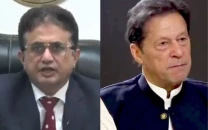PPP yet to take position on dual nationality proposal: Bilawal
May affect overseas Pakistanis, bureaucrats, sportspersons, government officials

The Pakistan Peoples Party (PPP) has not reached an internal consensus on the government’s proposed constitutional changes related to dual nationality, with Chairperson Bilawal Bhutto Zardari stating that the party is not yet in a position to support or vote on the provision under the 27th Constitutional Amendment.
According to a press release issued by the Media Cell Bilawal House, Bilawal said, “The CEC meeting could not reach a consensus on some proposals, including those related to dual nationality, the Election Commission, and executive magistracy. Therefore, I am not in a position at this time to either vote for or support those constitutional proposals on behalf of my party”.
There have been rounds on X and other social media platforms that the 27th Constitutional Amendment proposes abolishing dual citizenship, requiring Pakistanis who acquire another nationality to surrender their Pakistani citizenship.
🚨 BREAKING NEWS:-
— Asad Nasir (@asadnasir2000) November 6, 2025
The 27th Constitutional Amendment proposes abolishing dual citizenship, requiring 🇵🇰 Pakistani's who acquire another nationality to surrender their Pakistani citizenship. pic.twitter.com/B8kfJEtyXy
Until the amendment is passed, it cannot be officially confirmed whether the policy will apply to all foreign nationals, including overseas Pakistanis, or be limited to government officials serving in the bureaucracy, or even sportspersons representing Pakistan on the global stage.
Many senior journalists also posted their concerns on X regarding the particular clause.
Pakistan’s proposed 27th Amendment would abolish dual citizenship, requiring Pakistanis with foreign nationality to give it up to retain Pakistani citizenship. The move could have serious implications for overseas based Pakistani sportspersons who proudly represent the country in…
— Faizan Lakhani (@faizanlakhani) November 7, 2025
The proposed amendment follows a series of recent legislative moves revisiting Pakistan’s dual nationality framework. Earlier this year, the government introduced the Pakistan Citizenship (Amendment) Act, 2024, which allowed Pakistanis to retain their citizenship after acquiring nationality of 22 designated countries, marking a major shift from previous policy.
Read: Dual identity?
Under that amendment, nationals obtaining citizenship from countries including the United Kingdom, United States, Canada, Australia, France, Germany, and several others in Europe and the Middle East were no longer required to renounce their Pakistani nationality. The move was intended to simplify bureaucratic hurdles and ease citizenship complications faced by overseas Pakistanis.
Earlier, the government had also moved the Pakistan Citizenship (Amendment) Act, 2024, in the National Assembly, seeking to amend Section 14A of the 1951 Act to ease citizenship resumption for members of the Pakistani diaspora.
The proposed law would allow individuals who previously renounced their nationality to reclaim it through a formal declaration once their host country establishes a dual nationality arrangement with Pakistan.
It also extends this right to their minor children, aiming to address hardships faced by overseas Pakistanis compelled to forgo their citizenship to acquire a foreign nationality.
However, the latest constitutional proposal moves in the opposite direction — seeking to abolish dual nationality altogether and require Pakistanis who acquire another nationality to surrender their Pakistani citizenship.
Read More: Citizenship Act challenged in PHC
The shift comes amid heightened debate over dual loyalty and public office eligibility. Parliamentary committees have previously argued that holding two nationalities conflicts with the oath of allegiance taken by public servants and lawmakers.
The Senate Standing Committee on Cabinet Secretariat, during deliberations on the Civil Servants (Amendment) Bill 2024, stressed that “it would be impossible for any civil servant to be loyal to two countries”.
This broader debate reflects a growing divide in policy direction between those advocating for inclusivity toward the diaspora and those calling for stricter national identity safeguards.




















COMMENTS (1)
Comments are moderated and generally will be posted if they are on-topic and not abusive.
For more information, please see our Comments FAQ